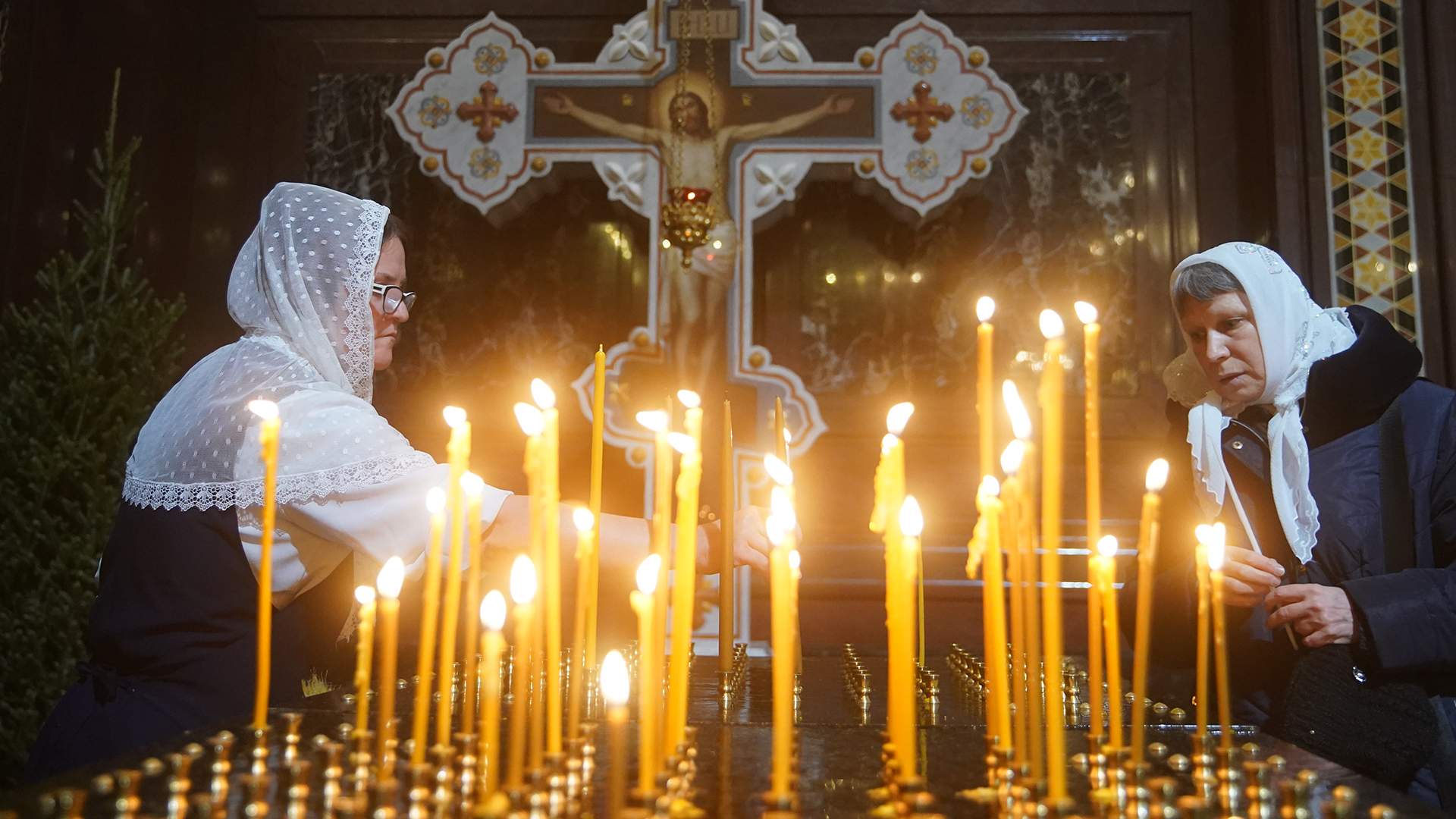Christmas Lent - 2024: when it begins, traditions and prohibitions

At the end of November 2024, Christians of the Eastern Rite will enter the last multi-day fast of the church year. The Christmas fast will last 40 days and is aimed at preparing for the most important holiday for believers - Christmas. Prohibitions and traditions of the Christmas fast - in the material "Izvestia".
Christmas fasting: history and traditions
Fasting on the eve of Christmas began at the dawn of Christianity. The earliest mention of the tradition dates back to the V century. Fasting was perceived as a sacrifice and gratitude to God for the harvest.
In the Orthodox tradition, multi-day fasts precede all significant Christian holidays: Christmas, Easter, Dormition of the Virgin Mary, Peter and Paul Day. The key task of such long abstinences is to prepare the believer for the celebration, physically and spiritually.
Fasting in Christianity involves more than just refraining from certain foods, these restrictions are an auxiliary tool and element of self-discipline during spiritual work. The most important thing during fasting is to devote enough time to prayer, repentance, getting rid of bad habits and thoughts. During Lent, Orthodox Christians forgive offenses and perform good deeds.
Christmas Lent in 2024: when the beginning and the end
The date of the beginning of the Christmas fast is constant, the last fast of the church year begins on November 28. Orthodox Christians fast for exactly 40 days before Christmas. Thus, in 2024, the fast will last until January 6, and the next day, January 7, Christians will be able to eat all foods again.
When the tradition first began, Lent lasted no more than a week. However, in 1166, representatives of the Greek Church established a 40-day fast. The Russian Orthodox Church (ROC) adopted the tradition at the end of the 12th century. This happened at the command of Prince Andrei Bogolyubsky, who was considered a supporter of "everything Greek".
In Russia, the Christmas fast was called Philip's fast, because the last day before the fast fell on the memorial day of the Apostle Philip.
During the fast, Christians are required to give up food of animal origin. During this 40-day period, it is also important to attend a service in the temple, to help those in need.
During Lent, alcohol is strictly forbidden, but wine can be consumed in moderate amounts on those days when fish and vegetable oil are allowed.
What you can and absolutely must not do during the Christmas fast in 2024
The Christmas fast is called the Quadricentennial, the period of 40-day restrictions is divided into three stages, each with different rules and prohibitions.
The first phase begins on November 28 and lasts until December 19. During this period, the most restrictive days of the week are Wednesday and Friday. On these days it is allowed to eat only water, bread, honey, raw fruits and vegetables. On Mondays hot food without oil is allowed, on other days Christians can also eat fish.
The second stage starts on December 20 and lasts until January 1. It differs from the first stage only in the prohibition of fish on Tuesdays and Thursdays, but on these days it is possible to eat food with oil.
The strictest stage in the Christmas fast is the last week before the main Christian holiday - from January 2 to January 6. On Monday, Wednesday and Friday believers should keep dry fasting. On Tuesdays and Thursdays it is allowed to eat hot food without oil, on Saturday and Sunday oil can be added to the food.
Christmas Eve is the final day of the Christmas fast, on January 6 believers do not eat until the first star appears in the sky. Shortly before that, the family prepares a table with 12 dishes, the most important of which is wheat porridge with nuts, raisins and honey - sochivo.
Orthodox Christians are allowed some indulgences in the Christmas govening, which should be coordinated with a spiritual director in the church. The restrictions of fasting are also simplified for children, people with chronic diseases, the elderly and pregnant women.
The most difficult test for believers is the period of New Year, when the country is already celebrating, and believers have the strictest fast for these days.
Archpriest Pavel Velikanov on the pages of "Pravmir" called the New Year holidays a time when believers can test themselves for the last time. At the same time, the priest urged those who found themselves with friends at the festive table not to frown or refuse a light meal, but to share the common joy. "For frowning, harmfulness and bitchiness, it seems to me, are much more likely to be far away from the Kingdom of Heaven," he added.
Folk omens for the Christmas fast in 2024
The Orthodox Church is generally critical of omens, considering them superstitions that can distract people from true faith and trust in God. Omen in their basis are often connected with pagan beliefs, magic or fears, which contradicts the Christian worldview
However, omens have been formed over centuries, so many people still tend to believe in them. So, if it snows since the beginning of Lent, it promises a rich harvest in the future. If frosty weather and snowstorms persist during this period, the next spring will come early. Warm weather, on the contrary, portends prolonged cold weather in spring.
Переведено сервисом «Яндекс Переводчик»





